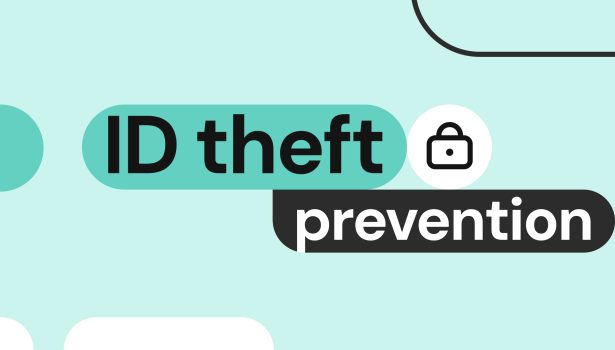Why privacy protection is key to preventing identity theft

You’ve certainly seen them before. The emails and letters that arrive after another company experienced a data breach, one of nearly 700 in 2023. They offer apologies and identity theft protection services that promise to safeguard your identity by providing credit monitoring and timely alerts. Even though these are helpful tools that can make it easier to spot potential fraud and remediate identity theft consequences, they work retroactively, after the damage is already done, leaving you vulnerable to data theft and misuse.
A proactive and more efficient approach to protecting yourself from online threats is to make it impossible for identity thieves to find and use your sensitive information in their schemes.
Identity theft protection: what these solutions do
Identity theft protection services began as a response to rising identity theft. Companies like Lifelock, Identity Guard, Identity Force, ID Shield, IdentityWorks, and others were launched in the early 2000s, coinciding with the internet’s rise which made digital identity theft a pernicious problem for more people. Their goals were (and remain) simple – let you know that your sensitive information has been used for transactional purposes, and help you restore your identity if it has been stolen.
Here’s what identity theft protection companies actually do for you:
- Monitor: They oversee your credit activity by obtaining reports from credit bureaus and scan for potential threats to your identity, such as unauthorized account openings or credit inquiries.
- Alert: They promptly inform you of any detected instances of possible identity theft, such as unauthorized use of your personal information to open accounts or access financial services.
- Recover: If someone hacks your information and uses it nefariously, these companies assign an Identity Restoration Specialist to assist you with cleaning up the mess. They facilitate the recovery of lost funds and help mitigate any damage to your credit. Additionally, many companies offer insurance coverage, up to $1 million, for such instances.
Furthermore, some solutions include additional features, e.g. alerts regarding identity theft news, monitoring of local sex offender registries, dark web scans, safe browsing tools, VPN and antivirus software, and other privacy-enhancing add-ons.
Despite having powerful security capabilities, most identity theft protection companies aren’t capable of preventing identity theft – that’s where privacy protection comes into play.
What is privacy protection and how does it help with preventing identity theft?
Privacy protection services proactively remove your personal information from the internet’s many data broker sites and web searches, reducing the risk of identity theft and other online crimes.
To illustrate how this dependency works, identity thieves rely on people’s personally identifiable information, which can be easily accessed through a Google search that returns dozens of unauthorized personal profiles compiled by people-search sites and data brokers. These profiles contain hundreds of personal data points, including your home address, phone numbers, emails, social media, relatives, credit score and income range, property ownership, and so much more.
The connection between your exposed information and identity crimes is unbreakable – in order to be convincing, 100% of social engineering attacks (and plenty of phishing scams) exploit the victim’s personal details. Identity theft, too, is impossible without identifiable information. Here’s a common story: someone’s name and SSN show up in a data breach. The chances are high that fraudsters will turn to people-search sites to buy the rest of the person’s details to be able to get around security questions, open credit accounts, steal funds, file tax returns or get medical procedures in their victims’ name.
Just like these crimes start with collecting information about a potential victim, preventing identity theft begins with personal data removal. Erasing your information from people-search websites also removes it from Google, cutting off access to your key vulnerability. This effectively limits threat actors’ ability to act, making privacy protection services an essential tool that helps prevent identity theft.
How Onerep keeps your information off the internet
Onerep offers comprehensive privacy protection for individuals and families by identifying, eliminating, and continuously monitoring personal data exposure across 232 people-search websites, which account for the most significant portion of your online exposure.
How we do this:
- We scan data brokers and people search sites to find where your personal information is exposed.
- Once your information is discovered, Onerep starts the removal and doesn’t stop until your data has actually been deleted. We use our own Verified Removal™ process to ensure the information is deleted.
- We provide ongoing privacy protection by monitoring 195+ websites to make sure your private info stays off the internet. OneRep’s True Scan™ technology performs instantaneous scans every month, checking for new or reappeared profiles on people-search websites. If they’re found, we repeat the removal.
Identity theft protection vs privacy protection: do you need both?
To be sure, both identity theft protection and privacy protection services can be vital weapons in the battle against fraud and theft.
Privacy protection is essential when:
- Your goal is online safety: By removing your information from people-search websites, you’re taking control of your online presence and limiting the amount of information that is publicly available about you.
- You want to prevent ID theft and reduce cyber threats, such as social engineering, fraud, doxxing, online harassment, robocalls, and junk mail.
- Your aim is to safeguard yourself and your family from physical threats like stalking or home attacks.
- You care about your reputation: People-search websites gather their data from various sources, which may not always be accurate or up-to-date. Also, errors frequently occur when they match data to create profiles on you. All this can lead to potential misinterpretations and harm to your reputation.
Consider signing up for an identity theft protection service if:
- You’ve fallen victim to ID theft. Identity theft protection services will help you by freezing your credit, liaising with banks, assisting with accounts restoration, and offering insurance against potential losses.
- You’re at risk due to a data breach, or stolen wallet/sensitive information.
- You’re seeking assistance in monitoring your credit.
Bottom line
Privacy protection is an essential defense against identity crimes. As scams, fraud, and identity theft continue to rise, proactive privacy protection becomes increasingly critical alongside response-oriented identity theft protection services.
By choosing privacy protection services, you invest in preventing the disaster before it occurs.
FAQs
Why is it important to have identity theft protection?
Identity theft protection helps safeguard your personal and financial information from being compromised and misused. As the number of data breaches grows rapidly each year, ID theft protection services can detect suspicious activity early on and help take action before major damage is done. Such services typically include credit monitoring, dark web monitoring, and recovery assistance.
How to protect against identity theft?
To protect yourself against identity theft, it’s crucial to remove your personal information from data brokers. You can opt out manually or rely on a privacy protection service like Onerep. It’s also important to create complex passwords and enable 2FA for all financial and personal accounts. To reduce the risks of your information being exposed in a data breach, consider using dummy data whenever possible (when registering for new services, submitting forms, etc).





Mark comes from a strong background in the identity theft protection and consumer credit world, having spent 4 years at Experian, including working on FreeCreditReport and ProtectMyID. He is frequently featured on various media outlets, including MarketWatch, Yahoo News, WTVC, CBS News, and others.